He is the co-editor alongside Jennifer Roberts of the travel writing anthology Fearless Footsteps (2020), and the author of Travel Your Way (2022) and Untethered (Coming September 2023).
In this interview, Nathan talks about his journey in establishing Intrepid Times, what narrative travel writing means to him, how to make writing stand out by exploring diverse perspectives instead of focusing solely on oneself, and his views on the future of travel writing in the face of emerging AI technology.
Q. Can you tell us about your interest in travel writing and how it led to the founding of Intrepid Times?
I write and tell stories for a living and have been doing a version of this my whole adult life.
Travel must have been encoded in the genes for me — perhaps my earliest childhood memory is standing up to my full four-ish year-old height in the back of a taxi in Singapore and staring in wonder at the overwhelming street life outside.
We were stopping over on the way from New Zealand to see family in England, and suddenly the world became a thousand times the size it had seemed to me before.
Ever since then, travel has become my obsession.
It was my grandfather who introduced me to travel books by renowned writers like Paul Theroux, Colin Thubron, and Patrick Leigh Fermor. Reading and writing about travel quickly became a source of immense fascination for me.
Over time, I realized that there was a gap in the market for a platform that offered accessible, literary and relatable travel stories. Intrepid Times was brought into being by this very realization.
Q. What makes a great travel story?
A great travel story is one you are powerless to resist. It pulls you along like a bullet train accelerating out of the station.
You can’t help it … you are forced to read every line.
As you read, you are not just scanning text on a page, but instead, you are taken to the very heart of the place conjured through the author’s vivid description.
You feel like you are right there with them, experiencing their sense of wonder as they encounter new people, places, and things that must be seen to be believed.
The words leap off the page that it makes you make you feel like you are there.
Q. Who are the travel writers that have influenced your writing style the most?
I mentioned Theroux, Thubron and Fermor above.
I am also a huge fan of Paul Rimple who writes mostly about Georgia — his writing is the perfect encapsulation of what I described above.
You glance at the first line, 10 minutes later, you are already mentally planning a trip to wherever he described.
I spent my late teenage years trying to write like Hemingway. In my early 20s, I aspired to write like Kerouac, and in the past decade, I have strived to establish my own unique voice.
Q, Intrepid Times explores new locations, human interaction, and traveler reflections instead of travel guides. What do you hope those stories will inspire readers to engage with travel differently?
Exactly—So much travel writing is either “Wow the world is so bizarre, man” or “Look, it’s me trying to find myself to see how brave and amazing I am.”
At Intrepid Times, we try to look beyond blinders and chase different perspectives on the world as it really is.
I like to think of travel as a sacred act – An act of letting go of yourself, of unburdening yourself of every assumption and expectation, and just being in the strange and wonderful moment.
While I hardly achieve this myself, when someone accomplishes it and writes truthfully, it’s magical.
Q. Intrepid Times writer Maria Betteghelle once said, ‘Everybody is a tourist, but not everyone is a traveler.’ What do you think about this quote?
Cool quote! Yeah, imagine this: You are in a popular tourist spot, let’s say Bangkok. On the main street there are hundreds of Brits and Americans and Australians and Germans being jostled by local touts trying to sell this and that.
This is as fake as travel gets. But it is also real—it’s an example of something real, too. And then what do you do? Do you go with the touts and see their crazy show? Probably. But the next night you come back, you do what none of those Aussies and Brits are doing: You walk a street over. Then another street. And things get quieter, and suddenly you seem to be the only foreigner around.
And you find a small outside bar, order a huge beer, and start chatting with the owner. I guess this comes back to Maria’s quote, it isn’t about NOT being a tourist, but rather not ONLY being a tourist.
Q. One of the articles on Intrepid Times suggested that writers should minimize their use of personal pronouns like “I” and “me”. Why do you think this is important and how it affects the art of storytelling?
We publish first person narrative travel stories, so these pronouns have their place. And sometimes they are necessary.
But it can become problematic when used excessively and carelessly. It’s not just sloppy writing—it’s more than that. It’s a problem of perspective. If you’re seeing “I” used in every sentence, what does this tell you about what’s important to the writer?
Using “I” can be powerful when it’s done deliberately, but I urge aspiring travel writers to consider their intentions when doing so.
Does it really serve the story to bring the focus back to the author at this moment?
Q. How do you make your travel writing more imaginative and creative, and can you provide examples of how you apply it in your writing?
The most basic approach here is to run through the five senses. It’s deceptively simple. Afterall, how often do we pause in our real life to consciously run through what we hear, see, taste, smell and feel (tactile) at any given moment?
This also can help writers avoid the “I” trap described above. Take a travel memory. Run through it across the five senses and describe each one without using I — this will help you get out the gate!
Here’s a great example of that used by Fiona Davies in an Intrepid Times story from a few years back— notice how “I” is used just once to establish the perspective, before it seamlessly shifts to powerful sensory descriptions of what is being observed.
“In the ancient Sri Meenakshi Amman Temple in Madurai, I watch a lone worshiper conduct a
ceremony known as puja amid a thickly swirling cloud of perfumed incense. He wears only white
dhoti trousers, and his brow is streaked with turmeric paste and sweat. Eyes closed in quivering
ecstasy, he clasps his hands across his heavily contracting chest in a gesture of prayer. Next,
he lowers himself on bent knees, stopping just short of collapsing to the ground. In one fluid
movement, he raises himself up, lifting his hands to the heavens and bowing his head to the
earth. In a silent, graceful trance, he repeats these motions, again and again, as the sounds of
the temple musicians swirl around him towards a shrill and feverish crescendo.”
Street Dancing with Shiva – Fiona Davies
Read the full article here.
Q. How do you see the future of travel writing changing with the rise of AI, and what new opportunities or challenges will this bring?
I’d like to draw a distinction here between travel writing in the form of writing guides (à la Lonely Planet), and narrative, creative travel writing that we publish on Intrepid Times.
Guide writing has been dramatically rocked by changing tech at every turn, and AI seems to be the latest disruption here. It’s not hard to imagine a world where an internet-connected generative language model can churn out convincing hotel recommendations and trip itineraries.
It’s probably already being used to assemble guide style content. Where the magic comes from is the personal experience of the traveler. This is what we try to capture in the stories we publish. And this is irreducibly human.
Nick Cave wrote, “Chat GPT has no inner being, it has been nowhere, it has endured nothing.”
This tool will have implications for all industries, not least of all travel and travel writing. But the art of narrative nonfiction travel writing will endure.
And maybe in an ocean of auto generated content, real human storytelling will stand out more than ever.
Q. What advice would you give to aspiring travel writers who are looking to break into the industry and establish themselves as unique voices in a crowded field?
Be wild, be reliable. Many can do one, surprisingly few can do both. I know many writers who are reliable and competent, who can churn out 1,500 interesting words on any subject on deadline.
I also know many writers who will delight and surprise you, who will find a way of looking at something no one else has. They turn up in our submission’s inbox with a scintillating piece of prose, promise further stories, then disappear for months on end, missing deadlines and neglecting commitments.
How can you be both? Wild and surprising on the page, predictable and dependable in the inbox?
It’s a contradiction because the conditions that lead to one state of mind are antithetical to another, and in the age of the internet, people are expected to be on all the time.
If you could figure this one out on your own terms, the travel space is yours for the taking.

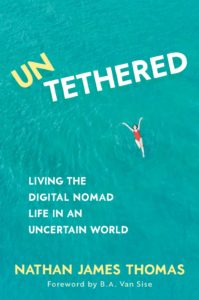

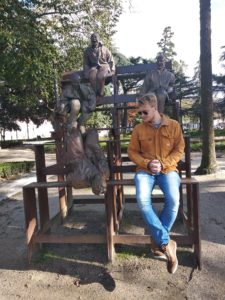
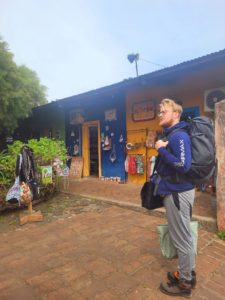
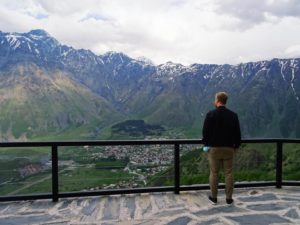
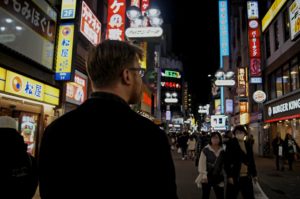

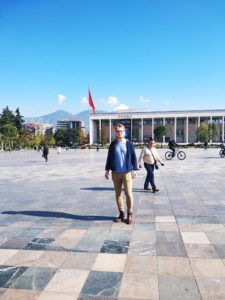






Leave a Reply